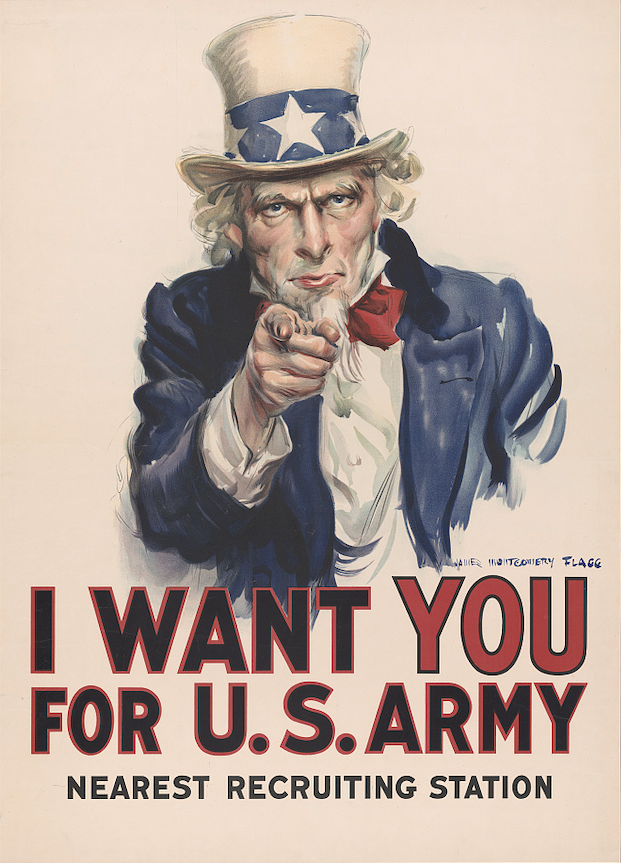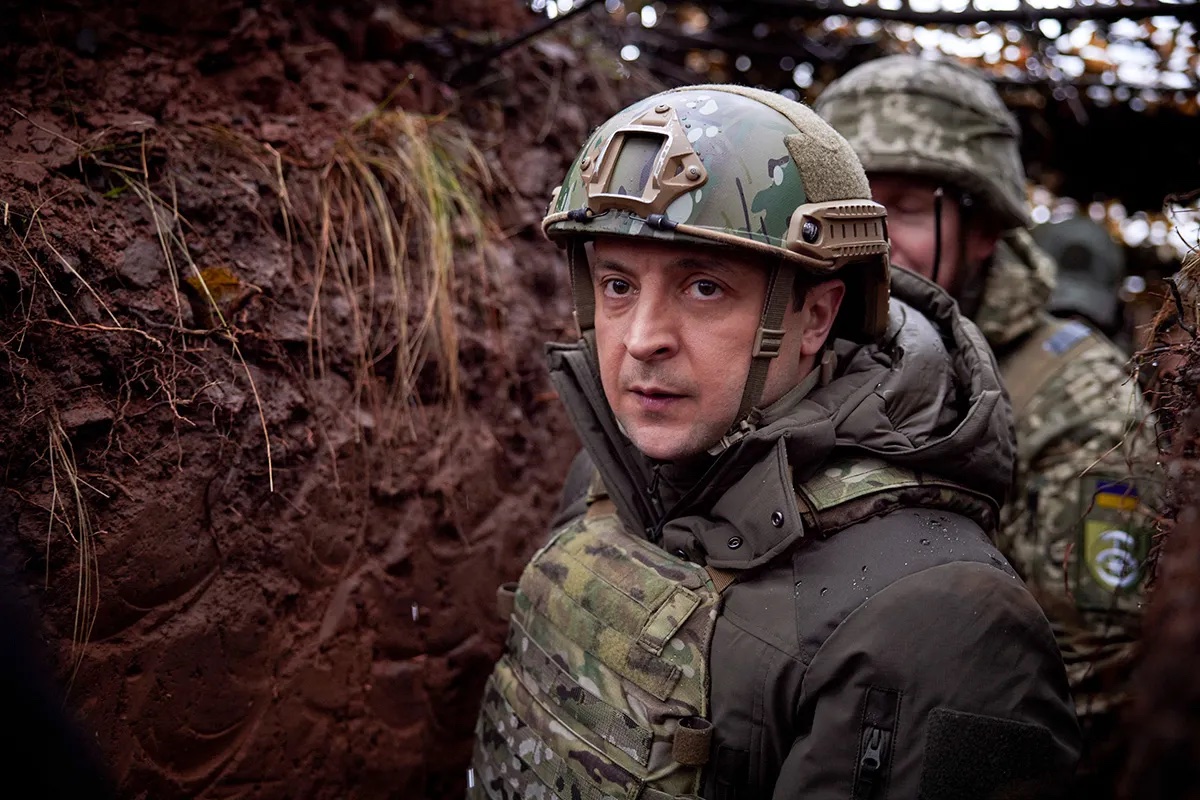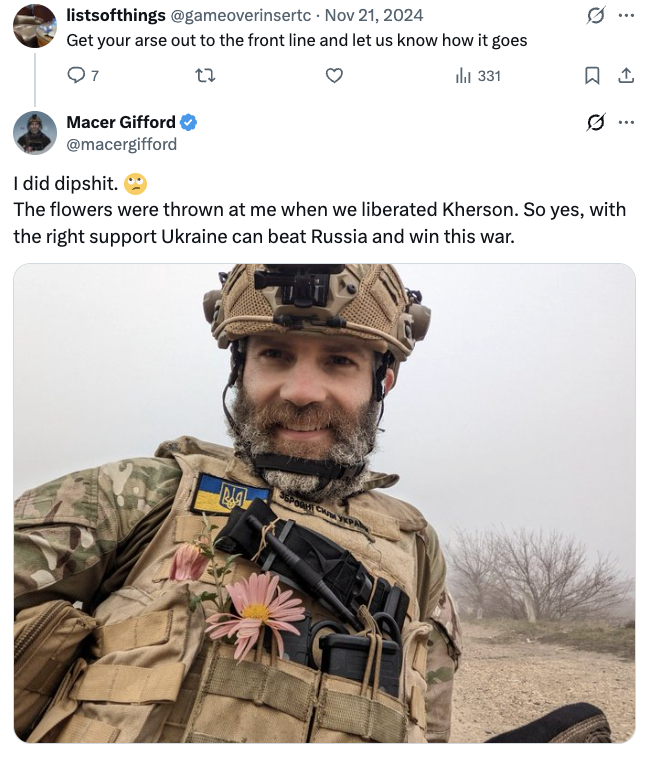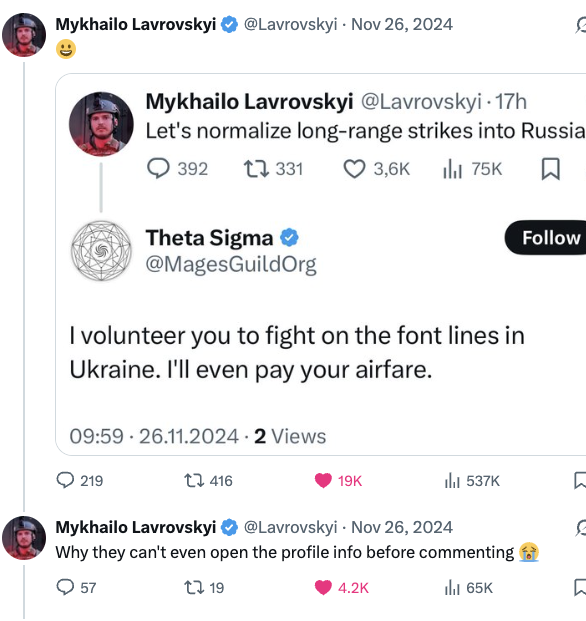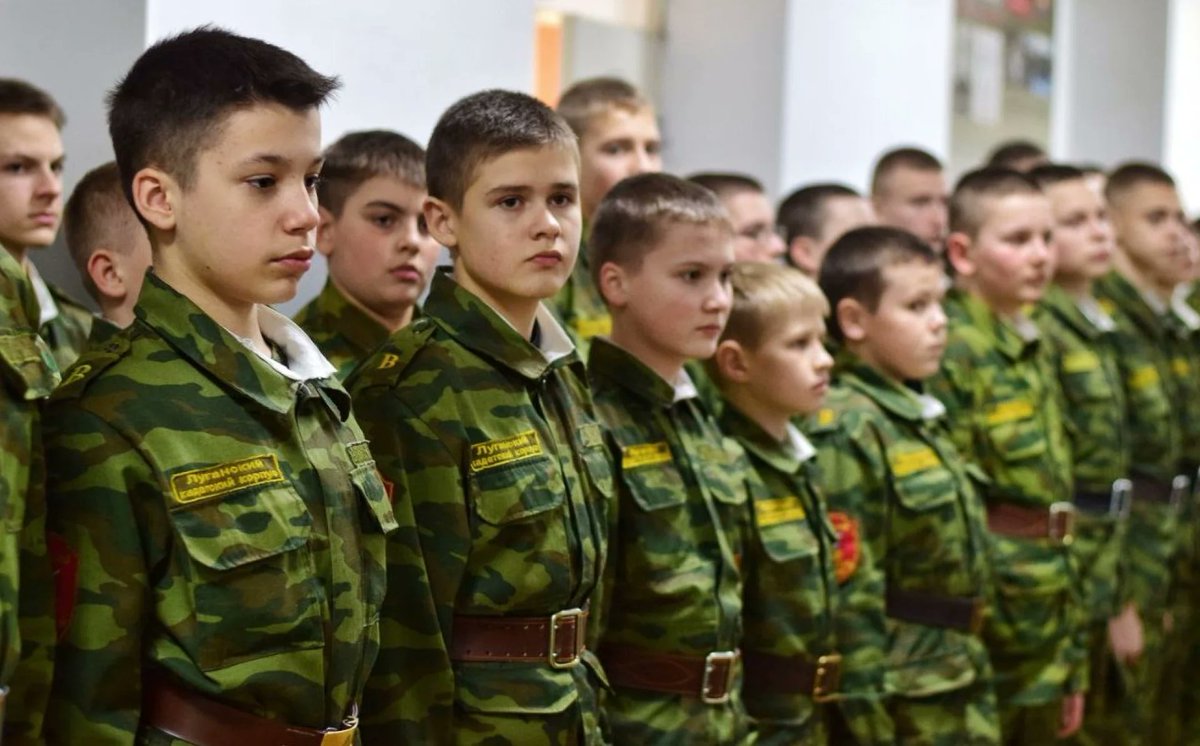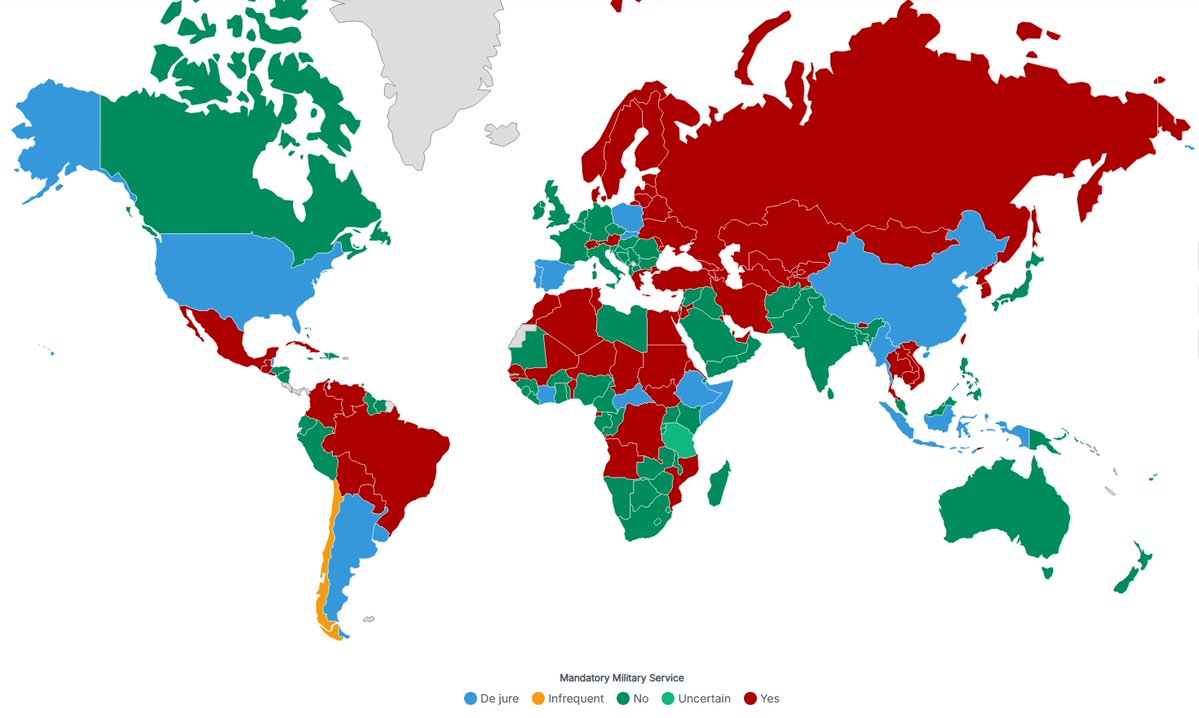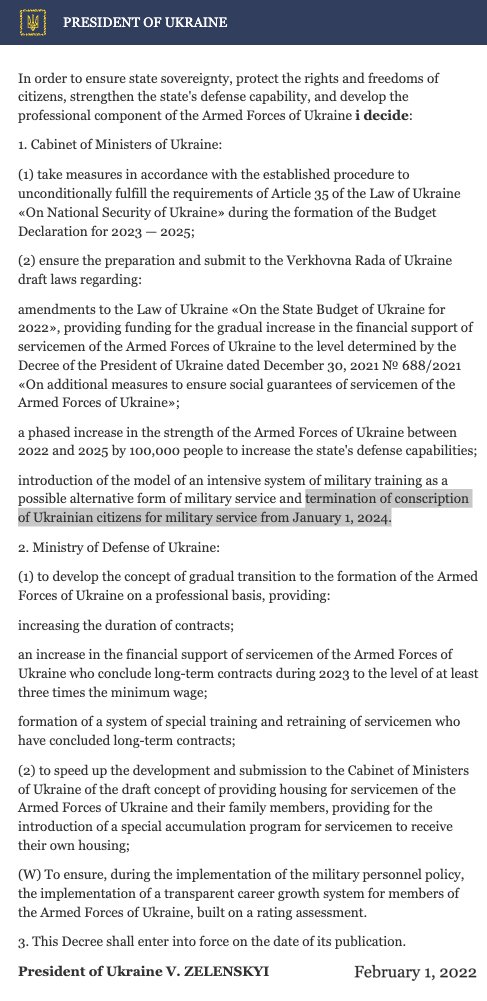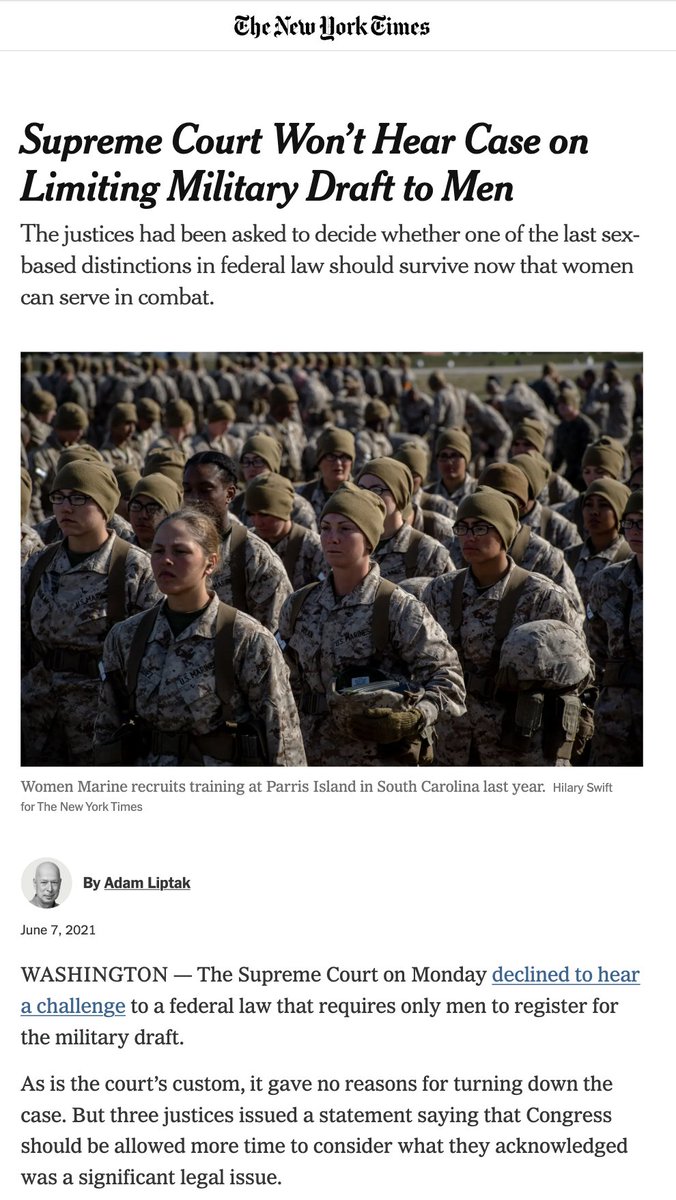In today's #vatniksoup, I'll talk about peace negotiations. There's a common misconception that only Russia wants peace and Ukraine wants to keep on fighting "until the last man", but of course this is far from the truth.
1/18
1/18

There's been peace talks pretty during the whole duration of the Russo-Ukrainian War. The first meeting was held in Belarus, just four days after the start of the invasion, on 28 Feb 2022. In March, there were four more rounds of negotiations in Belarus and in Turkey.
2/18
2/18

In 5 Mar 2022,Israel's Naftali Bennett was mediating the negotiations between Ukraine & Russia. They were also coordinated by the US, France & Germany. Bennett said that both sides wanted a cease fire, and that it was the Western powers that stopped this deal from happening.
3/18
3/18

If you look at the map from that time, it is easy to see why Russia would've wanted a break from fighting - they were controlling eastern, northern and southern parts of Ukraine, their 3-day plan to take Kyiv had failed and their convoy to Kyiv was stalled.
4/18


4/18


Kyiv must have been worried about the convoy reaching the capital, and they probably also wanted to stop Russia from invading more regions in Ukraine. Bennett later tweeted that he had his doubts about the deal, and said the odds for it holding were roughly 50-50.
5/18
5/18

From the beginning, many politicians stated that Russia wouldn't hold their end of the deal, and for example French Foreign Minister Jean-Yves Le Drian said that Russia was only "pretending to negotiate", a strategy they had used many times before.
6/18
6/18

On 9 Apr 2022, Boris Johnson visited Zelenskyy and told him that "Putin is a war criminal, he should be pressured, not negotiated with." Now this statement is often used as an evidence that the West sabotaged the peace negotiations, but it's worth mentioning that...
7/18
7/18

...this statement was made right after the atrocities in Bucha were revealed. Also, Lavrov later stated that the peace deal was no longer an option, stating that even the Donbas was not enough for Russia and that the "geography had changed."
8/18


8/18


During the early days of the invasion, Deputy Kremlin Chief of Staff Dmitry Kozak even proposed Putin a deal where Ukraine would not join NATO if Russia called off their invasion. Putin refused, as he wanted to annex more Ukrainian territories and absorb them into Russia.
9/18


9/18


Now, so-called "peaceniks" often like to talk about how the West and/or Ukraine are unwilling to "stop the killing" and negotiate with Russia. But what they fail to realize, is that Russia hasn't been willing to negotiate for peace, and when they are, they're planning to...
10/18
10/18

...re-group and mobilize more troops to continue their barbaric invasion. In Jun 2023, the Kremlin-controlled RIA Novosti published an op-ed by Viktoriia Nikiforova on Russian "empire building" and how it takes time.
11/18
11/18

According to Nikiforova, "it took Russia several decades and several peace treaties in the 17th century before it managed to annex Kyiv." Do read Oleksandr Polianichev's fantastic thread on this:
12/18
12/18
https://twitter.com/OPolianichev/status/1719095346180055161
As I mentioned, Russia was never ready to negotiate for truce or peace. Some examples: In Dec 2022, Dmitry Peskov said that any peace plan can only proceed if Ukraine recognizes Russia's sovereignty over the regions it annexed from Ukraine.
13/18
13/18

In Jan 2023,he said that "there is currently no prospect for diplomatic means of settling the situation around Ukraine." In Mar 2023 he said that "We have to achieve our goals. Right now this is only possible by military means due to the current position of the Kyiv regime."14/18




Incidentally, around this time there was a relatively large, allegedly Kremlin-sponsored "peace movement" and creation of the "antiwar" sentiment in the West, accompanied by large rallies in the US and in Germany:
15/18
15/18
https://twitter.com/P_Kallioniemi/status/1652211607609507840
In Jun 2023, Putin refused peace plan offered by African nations. In Jul 2023, Putin refused any peace negotiations "while Ukraine is on the offensive."
Of course, even if there was a truce, there would be no guarantees of ending the hostilities. After agreeing on...
16/18


Of course, even if there was a truce, there would be no guarantees of ending the hostilities. After agreeing on...
16/18


...humanitarian corridors from Mariupol, Russian troops opened fire on civilians. After signing an agreement on grain exports, Russia fired missiles at the port in Odesa.
17/18


17/18


Here you see Boris Yeltsin and Aslan Maskhadov ceremoniously signing a peace treaty between Russia and Chechnya in 1996. Three years later, Putin's Russia invaded Chechnya and completely obliterated its capital, Grozny. You really shouldn't trust Russia.
18/18


18/18


• • •
Missing some Tweet in this thread? You can try to
force a refresh


